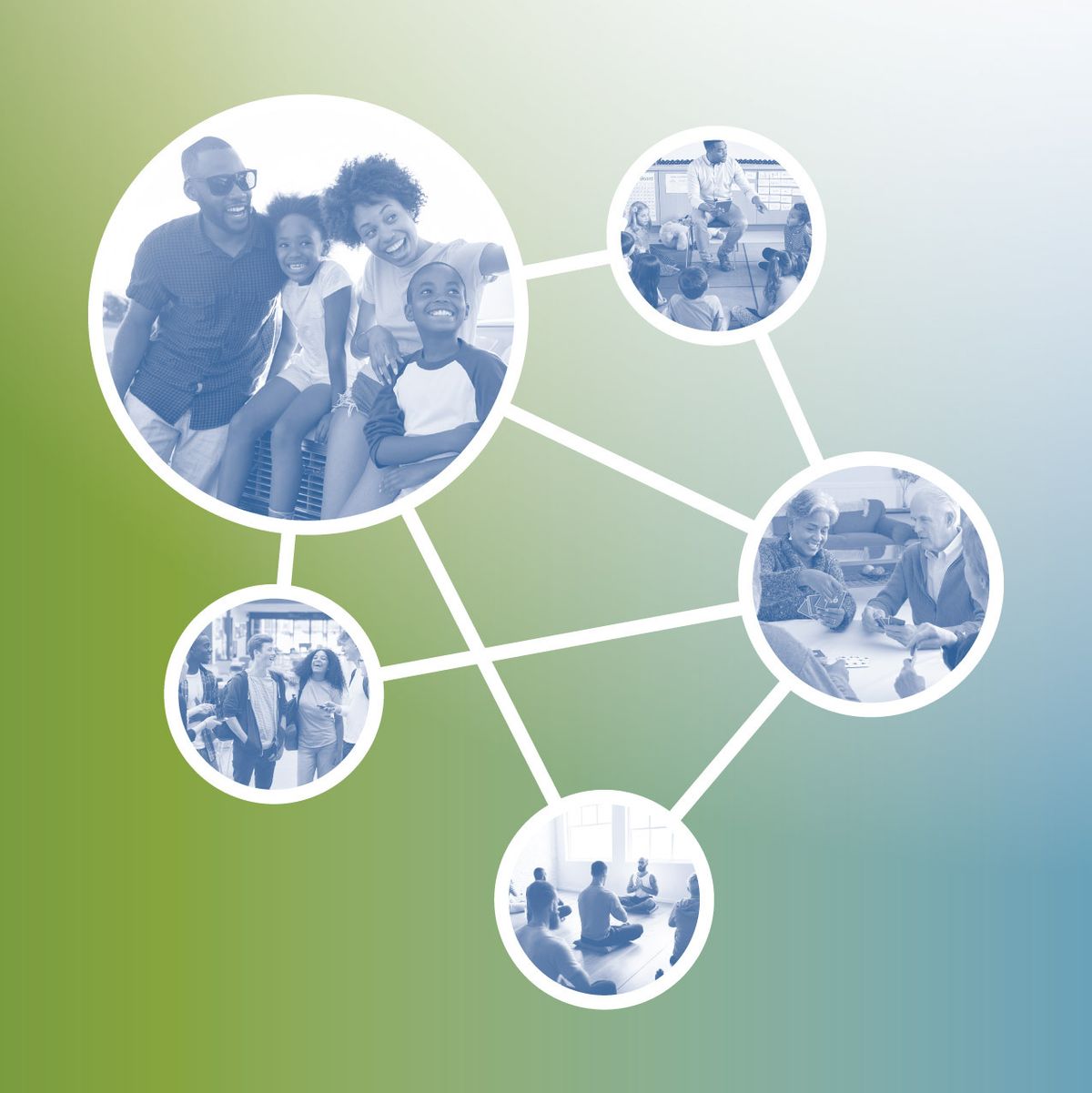Emotional Well-Being: High-Priority Research Networks

The National Center for Complementary and Integrative Health (NCCIH) together with the National Institute on Aging (NIA), Eunice Kennedy Shriver National Institute of Child Health and Human Development (NICHD), Office of Behavioral and Social Sciences Research (OBSSR), and Office of Disease Prevention (ODP), funds six research networks to advance research on emotional well-being (EWB) in the social, behavioral, psychological, biological, and neurobiological sciences. Elements of EWB include a sense of balance in emotions, thoughts, social relationships, and pursuits, or lack thereof. The relative importance of each construct will vary across subpopulations and developmental stages. Currently, fundamental consensus concerning the definition and components of EWB, as well as what interventions promote EWB, either as a mediator of health outcomes or as an end in itself, is lacking.
The EWB research networks are supporting a diverse range of activities, including research network meetings, conferences, small-scale pilot research, multidisciplinary cross-training, and information dissemination to foster the growth and development of EWB research. The scientific scope of each network is focused on a subset of high-priority research areas:
- Ontology and measurement of EWB
- Mechanistic research on the role of EWB in health
- Biomarkers of EWB
- Prevention research (mechanism-focused intervention development in target populations)
- Technology and outcome measure development for mechanistic studies
- Development and validation of well-being measures
NCCIH-Funded Networks
- M3EWB: Mechanisms Underlying Mind-Body Interventions & Measurement of EWB
- The interdisciplinary M3EWB research network will build consensus on a definition of EWB, explore existing measurement of EWB and contribute to gaps in this area (e.g., adapting and validating measures of EWB for children and adolescents), and investigate the relationship between mind-body interventions and EWB (i.e., whereby EWB may be an outcome or mediator of improved mental and physical health).
- Plasticity of Well-Being
- The Plasticity of Well-Being research network’s goal is to identify ways to measure people’s emotional health and well-being in everyday life and understand how flexible those aspects of well-being could be with effective, culturally relevant interventions and training.
- EMOT-ECON: Emotional Well-Being & Economic Burden
- The EMOT-ECON network will advance research and generate new knowledge about the impact of economic burden of disease on emotional well-being. It will be a leader in research that will minimize the impact of economic burden of disease and enhance well-being.
NIA-Funded Networks
- NEW Brain Aging: Network for Emotional Well-Being and Brain Aging
- The NEW Brain Aging research network aims to address mechanistic research on the role of emotional well-being in health, identifying and testing mechanisms by which brain aging influences emotional well-being and on how emotional well-being may impact risk for, and progression of, Alzheimer’s disease and related dementias.
- NEW-B: Network for Emotional Well-Being
- The NEW-B research network consists of a cohesive transdisciplinary network of scientists. Their goal is to enhance empirical rigor and consensus around the conceptual definition of EWB and measurement approaches, to promote synergy across methods and study paradigms, and to catalyze mechanistic intervention-relevant research that can yield reliable pathways for improving EWB.
NICHD-Funded Network
- FAM-NET: Family Well-Being Research Network
- The FAM-NET research network will support and advance research on measurement of family well-being and children’s quality of life. The network will build knowledge by funding new research, supporting and mentoring the next generation of scholars, and providing education and training in the area of family well-being.
Contacts
For further questions or further information about this program, please contact:
NCCIH
Erin Burke Quinlan, Ph.D.
Program Director, Basic and Mechanistic Research Branch
Division of Extramural Research
National Center for Complementary and Integrative Health
erin.quinlan@nih.gov
NIA
Janine Simmons, M.D., Ph.D.
Chief, Individual Behavioral Processes Branch
Division of Behavioral and Social Research
National Institute on Aging
simmonsj@mail.nih.gov
NICHD
Tracy King, M.D., M.P.H.
Medical Officer, Intellectual and Developmental Disabilities Branch
Division of Extramural Research
Eunice Kennedy Shriver National Institute of Child Health and Human Development
tracy.king@nih.gov